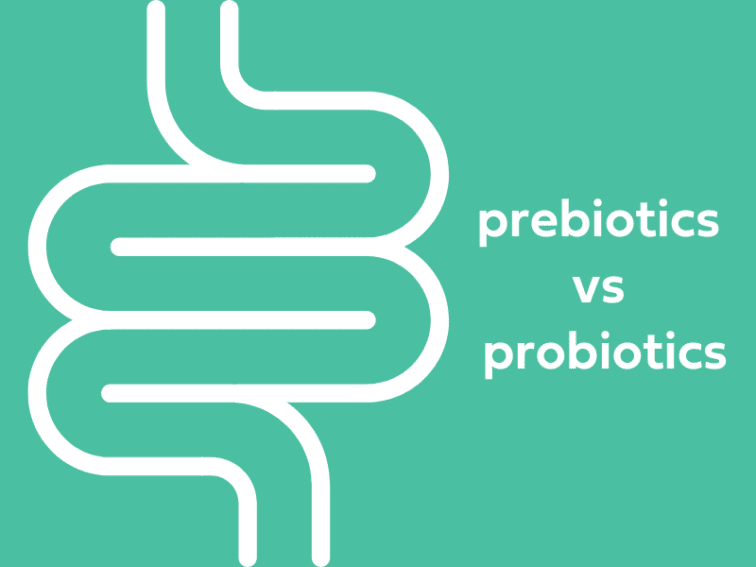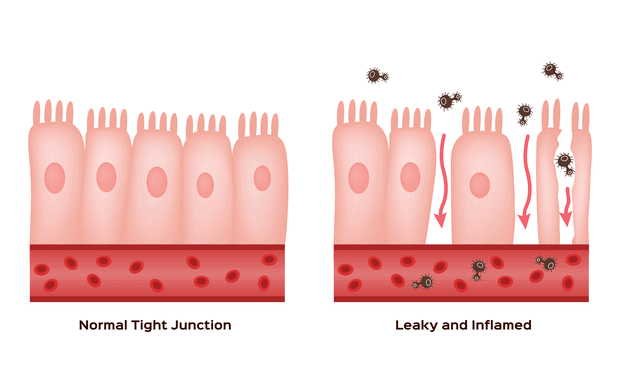
What’s The Difference Between Prebiotics and Probiotics?

If you’ve decided to start taking a gut health supplement, it’s important to understand the difference between probiotics and prebiotics so you know whether you’re getting the right kind of support for your specific needs.
With this in mind, we’re going to take a look at prebiotics vs probiotics, how both types of gut health supplement differ, their benefits, and recommended foods to eat to get more prebiotics and probiotics into your diet.
Understanding the role of gut bacteria
The human body contains trillions of good bacteria which have a variety of key roles, but may benefit from extra support from both prebiotics and probiotics. Our bodies’ gut bacteria live in the largest levels in the digestive system, but are also found in the urinary and reproductive systems, and in the skin. Their roles include:
- Supporting the health of the immune system
- Controlling levels of pathogens, such as bad bacteria and yeasts
- Synthesising certain vitamins (including vitamin K and some B vitamins)
- Supporting levels of certain chemical messengers linked to nervous system function (for example, much of the serotonin in the body originates in the gut)
- Supporting the breakdown of certain types of carbohydrates and fibres in the food we eat. This results in the production of short chain fatty acids, such as butyrate. Butyrate has anti-inflammatory effects, particularly in the digestive system but also elsewhere in the body, promotes the release of the hormone leptin (linked to suppressing appetite) and can be used as an energy source for good bacteria, further supporting levels of good bacteria
What are prebiotics?
Before we delve further into prebiotics vs probiotics, let’s look at exactly what prebiotics are. In short, prebiotics are a food source for good bacteria. Prebiotics are compounds found in food that help to promote the beneficial bacteria colonies that already reside in the gut. In other words, prebiotics are food for our gut microbes.
Prebiotics are types of carbohydrate and fibre that are indigestible in the small intestine. This means they cannot be broken by the digestive enzymes linked to carbohydrate digestion and so cannot be converted into glucose. Instead, prebiotics pass into the large intestine where they are broken down and fermented by hundreds of different strains of good bacteria. As a result, this helps to support the levels of all of these types of good bacteria.
Types Of Prebiotics
There are three different types of prebiotics:
- Soluble fibre
- Oligosaccharides – chains of sugars which cannot be split by digestion in the small intestine
- Resistant starch – this is provided in high levels in uncooked starchy foods such as grains and potatoes
What foods contain Prebiotics?
- Onions
- Garlic
- Asparagus (this ingredient will retain most of its prebiotic content when cooked al dente)
- Oats
- Chicory root
- Apples
- Bananas (the less ripe they are, the higher the prebiotic content!)
- Jerusalem artichokes
Prebiotics vs probiotics: what are Probiotics?
So, now we know what prebiotics are, let’s look at probiotics so you can understand the key difference between probiotics and prebiotics. To summarise, probiotics are an external supply of certain types of good bacteria.
Probiotics are live bacteria that are introduced to the body for their beneficial qualities, such as via gut health supplements. While you can use food-form probiotics too for their ability to populate the communities of good bacteria within the digestive tract, probiotics can be taken in supplemental form, such as via our Aguulp Gut Probiotic Supplement.
Probiotic supplements are formulated to provide an external supply of certain types of good bacteria – particularly those associated with certain specific health benefits and that are considered major strains of good bacteria in the body. Probiotics therefore only directly support the levels of the particular types of good bacteria they provide.
However, probiotics may indirectly support the levels of good bacteria in the gut as a whole due to supporting butyrate production (this acts as an energy source for many types of good bacteria).
What foods contain probiotics?
- Kefir – the bacteria in milk kefir can pre-digest the lactose content, making it much easier to digest if you are lactose intolerant. You can also experiment with water kefir as an alternative
- Live yoghurt – always check the labelling of yoghurt brands to see if they add ‘live cultures’ to their ingredients lists, to ensure you are reaping some beneficial gut bugs
- Kimchi – a Korean dish of spicy pickled cabbage that packs a flavour punch
- Sauerkraut – a German dish of chopped pickled cabbage, which is a less spicy alternative to kimchi
- Kombucha – this is a great swap from a high sugar fizzy drink. Kombucha is a drink produced by fermenting sweet tea with a culture of yeast and bacteria. The small amount of sugar that is added to kombucha for fermentation processes gets broken down, resulting in a low sugar drink full of friendly microbes and organic acids
Discover The Difference Between Prebiotic And Probiotic Supplements
You’ll find both prebiotic and probiotic supplements at Aguulp, containing different strains of bacteria so you can experience the difference between prebiotics and probiotics for yourself.
You can also take full control of your gut health with our superior Prebiotic & Probiotic Supplement Pack.

This gut health supplement pack will help to:
- Use the prebiotics to help stimulate the growth of your good gut bacteria
- Use the probiotics (live bacteria) as a great source of food for your gut.
Taking these two gut health supplements together ensures you have the optimal opportunity to improve your gut health, and therefore your overall health and wellbeing. Shop our full collection of gut health supplements today.

